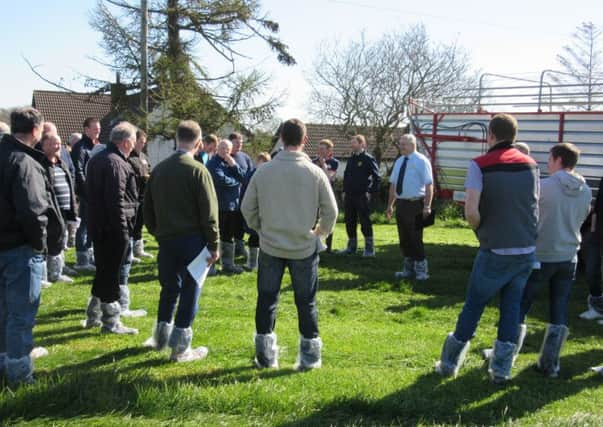Milk from forage is in the spotlight


The Davidson family run a year-round calving herd of 70 Holstein cows. Their current rolling herd average is 9,274 litres per cow from twice daily milking at 3.98% butterfat and 3.27% protein.
With cows receiving 2.90 tons concentrates, milk from forage stands at 3,594 litres. The Davidsons also rear 500 calves per year under contract for Linden Foods, Dungannon.
Advertisement
Hide AdAdvertisement
Hide AdWith milk prices depressed, producing more milk from forage is the number one objective on the Davidson farm. A target of 4,000 litres from forage has been set and they are well on their way to achieving it. A zero grazer was purchased last year, enabling the Davidsons to ‘graze’ cows from 10th March. Dr Ronald Annett, Ruminant Technical Manager at McLarnon Feeds, discussed the merits and cost of zero grazing cows relative to grazing or feeding silage. Although more costly than grazing, zero grazing provides an opportunity for confined herds to cut feed costs by at least 2 ppl over the summer.
Making top quality silage is another key priority for driving milk from forage. The Davidson’s first cut was taken on 30th April last year and analysed at 33.3% dry-matter, 11.3 MJ ME and 15.2% protein. David Mawhinney, McLarnon’s Ruminant Business Manager, explained how feeding top quality silage enabled the Davidsons to cut back on concentrate levels in their TMR and target feeding through the parlour for optimum feed efficiency. Excellent fertility management coupled with a high health status and attention to detail all help to cut costs in the current tough economic climate.
The calf housing attracted much attention at the farm walk, with the Davidsons currently rearing 500 calves per year under contract for Linden Foods, Dungannon. A new house has just been completed which will increase capacity to 1,000 calves per year.
McLarnon Feeds would like to thank the Davidson family for hosting an excellent farm walk and wish them every success for the future.
For more advice on the McLarnon Summer Range of dairy feeds, contact McLarnon Feeds on 028 7965 0321.